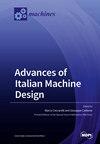Fault Detection and Diagnosis of the Electric Motor Drive and Battery System of Electric Vehicles
IF 2.5
3区 工程技术
Q3 ENGINEERING, ELECTRICAL & ELECTRONIC
引用次数: 1
Abstract
Fault detection and diagnosis (FDD) is of utmost importance in ensuring the safety and reliability of electric vehicles (EVs). The EV’s power train and energy storage, namely the electric motor drive and battery system, are critical components that are susceptible to different types of faults. Failure to detect and address these faults in a timely manner can lead to EV malfunctions and potentially catastrophic accidents. In the realm of EV applications, Permanent Magnet Synchronous Motors (PMSMs) and lithium-ion battery packs have garnered significant attention. Consequently, fault detection methods for PMSMs and their drives, as well as for lithium-ion battery packs, have become a prominent area of research. An effective FDD approach must possess qualities such as accuracy, speed, sensitivity, and cost-effectiveness. Traditional FDD techniques include model-based and signal-based methods. However, data-driven approaches, including machine learning-based methods, have recently gained traction due to their promising capabilities in fault detection. This paper aims to provide a comprehensive overview of potential faults in EV motor drives and battery systems, while also reviewing the latest state-of-the-art research in EV fault detection. The information presented herein can serve as a valuable reference for future endeavors in this field.电动汽车电机驱动与电池系统故障检测与诊断
故障检测与诊断(FDD)对于确保电动汽车的安全性和可靠性至关重要。电动汽车的动力传动系和储能系统,即电动机驱动和电池系统,是易受不同类型故障影响的关键部件。未能及时检测和解决这些故障可能导致电动汽车故障和潜在的灾难性事故。在电动汽车应用领域,永磁同步电机(PMSM)和锂离子电池组受到了极大的关注。因此,PMSM及其驱动器以及锂离子电池组的故障检测方法已成为一个突出的研究领域。一个有效的FDD方法必须具备准确性、速度、灵敏度和成本效益等品质。传统的FDD技术包括基于模型的方法和基于信号的方法。然而,数据驱动的方法,包括基于机器学习的方法,由于其在故障检测方面的良好能力,最近受到了关注。本文旨在全面概述电动汽车电机驱动和电池系统中的潜在故障,同时回顾电动汽车故障检测的最新研究进展。本文提供的信息可作为该领域未来工作的宝贵参考。
本文章由计算机程序翻译,如有差异,请以英文原文为准。
求助全文
约1分钟内获得全文
求助全文
来源期刊

Machines
Multiple-
CiteScore
3.00
自引率
26.90%
发文量
1012
审稿时长
11 weeks
期刊介绍:
Machines (ISSN 2075-1702) is an international, peer-reviewed journal on machinery and engineering. It publishes research articles, reviews, short communications and letters. Our aim is to encourage scientists to publish their experimental and theoretical results in as much detail as possible. There is no restriction on the length of the papers. Full experimental and/or methodical details must be provided. There are, in addition, unique features of this journal: *manuscripts regarding research proposals and research ideas will be particularly welcomed *electronic files or software regarding the full details of the calculation and experimental procedure - if unable to be published in a normal way - can be deposited as supplementary material Subject Areas: applications of automation, systems and control engineering, electronic engineering, mechanical engineering, computer engineering, mechatronics, robotics, industrial design, human-machine-interfaces, mechanical systems, machines and related components, machine vision, history of technology and industrial revolution, turbo machinery, machine diagnostics and prognostics (condition monitoring), machine design.
 求助内容:
求助内容: 应助结果提醒方式:
应助结果提醒方式:


